第39章 Chapter (2)
This was a hopeful plan by which to fill the British regiments, to save farther importations of Hessians, farther cost of mercenaries, and, as in the case of the Aborigines, to employ the Anglo-American race against one another. The loyalists of the South were to be used against the patriots of the North, as the loyalists of the latter region had been employed to put down the liberties of the former.
It was a short and ingenious process for finishing the rebellion;and, could it have entirely succeeded, as in part it did, it would have entitled Sir Henry Clinton to very far superior laurels, as a civilian, than he ever won as a soldier. The value of the Americans, as soldiers, was very well known to the British General.
Some of the most sanguinary battles of the Revolution were those in which the combatants on both sides were chiefly natives of the soil, upon which a portion of them but too freely shed their blood in a sincere desire to bolster up that foreign tyranny that mocked the generous valor which it employed.
The effect of this second proclamation of the British commander was such as he scarcely anticipated. The readiness with which numbers of the people had accepted paroles and protections, declared, at most, nothing but their indifference to the contest -- declared no preference for British domination. In this lay the error of the conqueror.
The natural feeling of the people, thus entrapped, was that of indignation.
Their determination might have been conjectured by any reasoning mind.
Compelled to take up arms -- not permitted to enjoy that repose with their families, for which they sought the offered immunities of the British -- it was more easy to espouse the cause of their countrymen, to which their affections were really given, than that of the invader.
They had committed a great and humbling error in the endeavor to escape the conflict -- in taking the proffered protection of a power which had seized with violence upon their native land.
It was with some eagerness, therefore, that they threw aside its obligations, and, as opportunity presented itself, girded on their armor, and sallied forth to join their countrymen. Among the first to do so were the men by whom Marion was summoned from the camp of Gates.
These brave fellows, occupying a portion of the country stretching from the Santee to the Pedee, including the whole of the present district of Williamsburg, and a part of Marion, were not altogether prepared to understand these British proclamations.
They were no great politicians, had no love of blind vassalage, and naturally suspected all liberality of British origin.
They wished for certain explanations before they sent in their adhesion.
Not that they calculated upon resistance. This, no doubt, seemed to them as hopeless as it appeared in all other parts of the State.
But their insulated position, which left them uninformed as to the true condition of things, was, at the same time, a source of their courage and indifference. As yet, the arms of the British had not penetrated into their settlements. They were naturally anxious to prevent their doing so. Under these circumstances, they held a gathering of their best men for the purpose of consulting upon their affairs.
The twin proclamations -- how unlike! -- of the British commander, were before them: and, in their primitive assembly, they sat down to discuss their separate merits. These confused rather than enlightened them, and it was resolved to send one of their number, in whom they had most confidence, to the nearest British authority, in order that their difficulties should be explained and their doubts satisfied.
There was one sterling family among them of the name of James.
Of this family there were five brothers, John, William, Gavin, Robert and James. No men under Marion were braver or truer than these.
Fearless, strong and active, they were always ready for the foe;the first in attack, the last in retreat. There were other branches of this family who partook largely of the qualities of the five brothers.
Of these, the eldest, Major John James, was chosen the representative of the men of Williamsburg. This gentleman had been their representative in the provincial assembly -- he was in command of them as State militia.
They gave him their fullest confidence, and he deserved it.
Under this appointment, Major James repaired to Georgetown, the nearest British post, which was then under the command of one Captain Ardesoif.
Attired as a plain backwoodsman, James obtained an interview with Ardesoif, and, in prompt and plain terms, entered at once upon the business for which he came. But when he demanded the meaning of the British protection, and asked upon what terms the submission of the citizens was to be made, he was peremptorily informed that "the submission must be unconditional."To an inquiry, whether the inhabitants were to be allowed to remain upon their plantations, he was answered in the negative.
"His Majesty," said Ardesoif, "offers you a free pardon, of which you are undeserving, for you all ought to be hanged;but it is only on condition that you take up arms in his cause."James, whom we may suppose to have been very far from relishing the tone and language in which he was addressed, very coolly replied, that "the people whom he came to REPRESENT, would scarcely submit on such conditions." The republican language of the worthy Major provoked the representative of Royalty. The word `represent', in particular, smote hardly on his ears; something, too, in the cool, contemptuous manner of the Major, may have contributed to his vexation.